‘We have enough genius in our community to grow our community’: How this D.C. entrepreneur pays it forward
August 27, 2024 | By Christine Gibson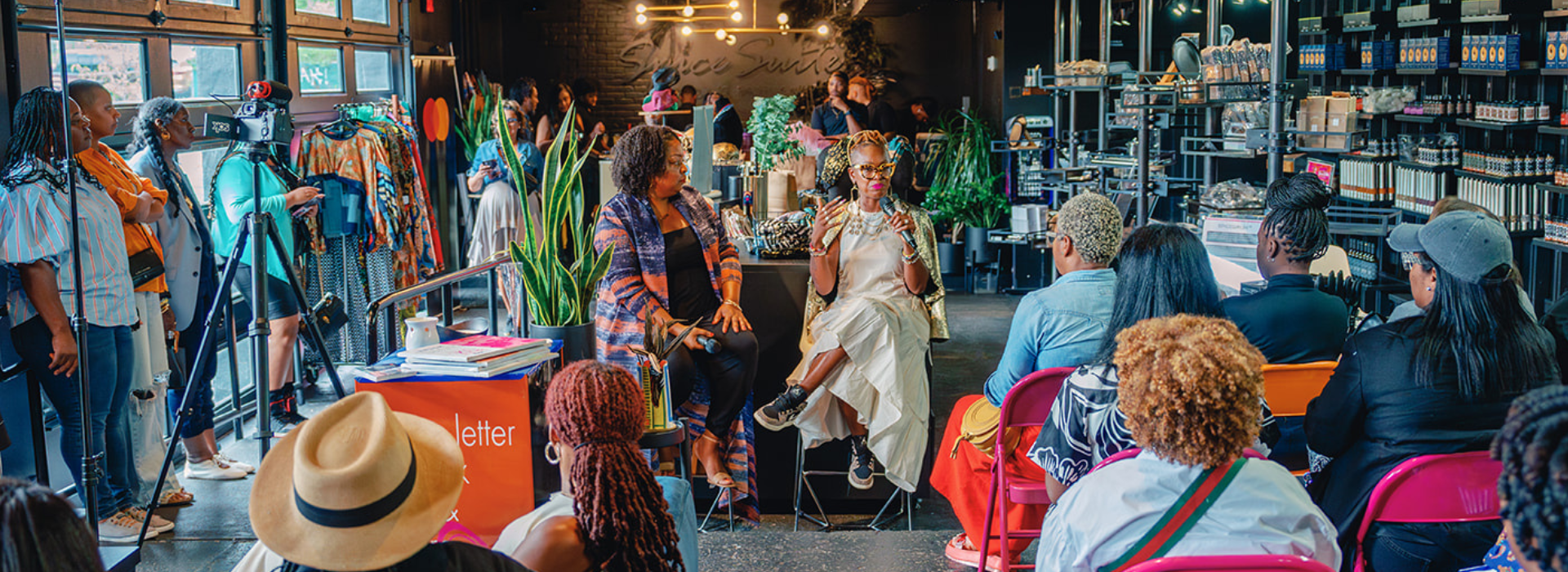
It all started on a whim. In August 2015, in preparation for her new job as an assistant high school principal in Washington, D.C., Angel Gregorio got a manicure. As she left the salon, she noticed a “For Lease” sign on a neighboring building. Curious about the rent, she called the number on the sign. The landlord told her the rate depended on how the space would be used. She scrambled for something to say to stop him from hanging up.
“I randomly came up with ‘spice shop,’ just to keep him talking to me,” she remembers. “But once I said it, it made a lot of sense.”
Four weeks later, she opened The Spice Suite in that same unit in northeast D.C., selling original spice blends, honey and fresh-squeezed lemonade. The shop now nets more than $1 million a year, earning praise from Beyoncé and counting Stevie Wonder and actress Taraji P. Henson among its customers.
And since then, Gregorio has steadfastly sought ways to lift other Black entrepreneurs. Over the years, her efforts have evolved into an incubator for Black-owned businesses in D.C. “I was given this random opportunity, and I wanted to pay it forward,” she says.
Gregorio’s extensive community network made her a fitting co-host for Solidarity in Action, Mastercard’s celebration of National Black Business Month in D.C. During the event earlier this month at the Spice Suite, attendees heard from local leaders and entrepreneurs about what’s on the horizon for D.C.’s small businesses — including how Mastercard will continue its work to advance inclusive growth in the city through its In Solidarity initiative.
Black-owned businesses are on the rise, but they still make up only a tiny fraction of all U.S. firms for which that data is available, and research shows they have more difficulty accessing credit, even after they’ve established themselves.
In Solidarity is a Mastercard initiative that builds on long-standing efforts to advance inclusion and equality, with a goal of helping close the racial wealth and opportunity gap in the U.S., and with a special emphasis on cities. Most Black majority-owned businesses — nearly nine in 10 — are located in urban areas, according to the Pew Research Center, and D.C. has one of the largest shares of Black-owned businesses in the country.
“The investment we make in cities, and in the equity work we do across the Center, is good business, and it’s good for the economy,” says Salah Goss, a senior vice president at the Mastercard Center for Inclusive Growth. “When small businesses do well, we all do well.”
Paying it forward
Until that fateful manicure, Gregorio assumed she would always be an educator. Having earned bachelor’s and master’s degrees in psychology from Howard University, she worked as a teacher and counselor in D.C. for 11 years. She’d never thought about starting a retail business, nor did she have a particular interest in spices. The venture was so spontaneous, she hadn’t even had time to apply for a loan or seek investors before the Spice Suite opened. Instead she continued to work as a principal that fall until the business got on firm footing.
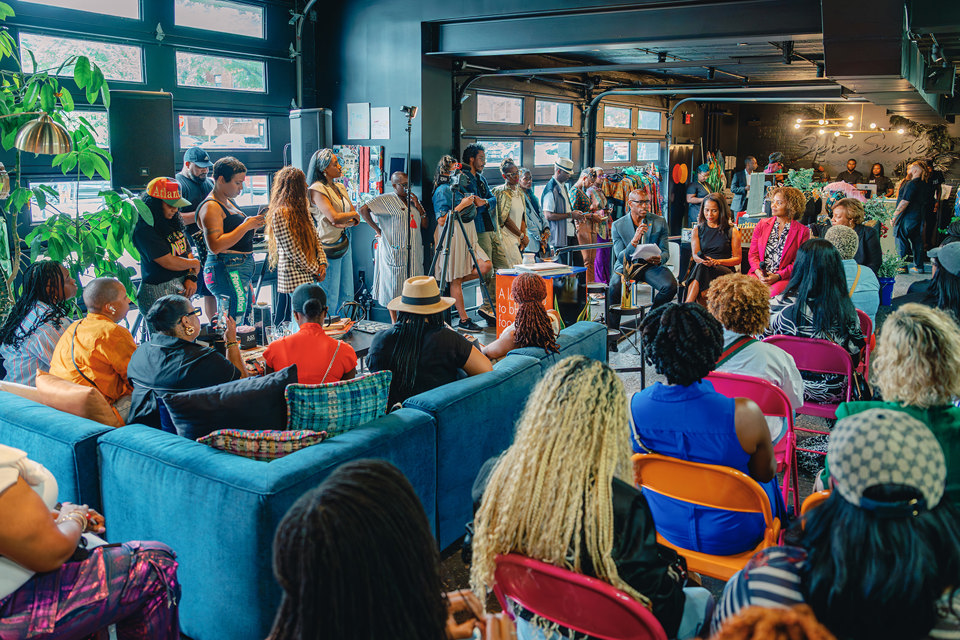
Mastercard celebrated National Black Business Month at The Spice Suite in Washington, D.C., with a pop-up marketplace and panels about entrepreneurship and access to capital.
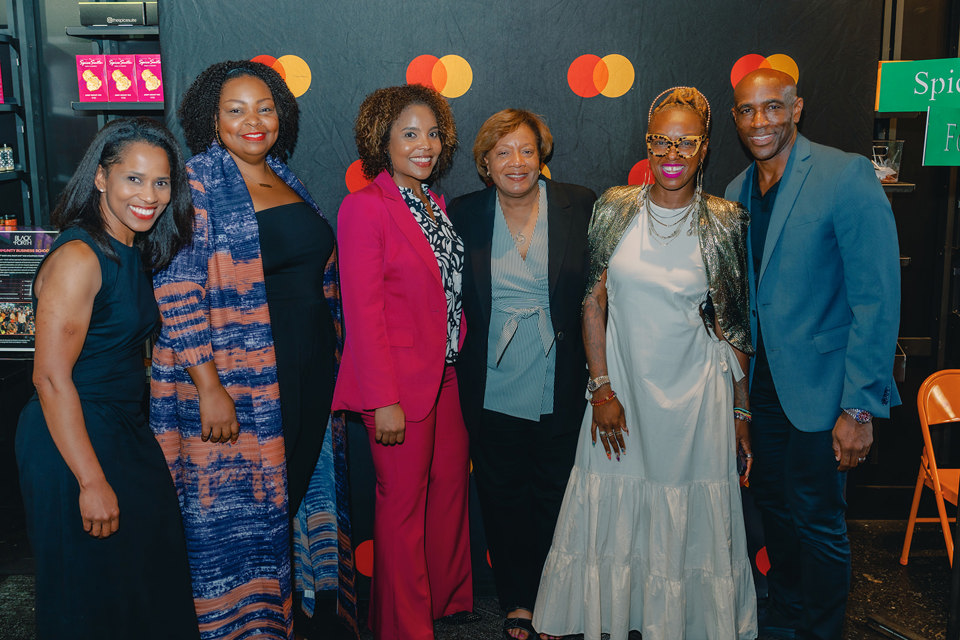
From left, the panelists at the event included Shena Ashley, president of the Capital One Insights Center; Salah Goss, senior vice president of the Mastercard Center for Inclusive Growth; Shannan Herbert, CEO of the Washington Area Community Investment Fund; Sonja Sanders Wells, executive vice president and Eastern Commercial Regional executive of City First Bank; The Spice Suite owner Angel Gregorio; and Troy Dennis, senior vice president for product management at Mastercard.
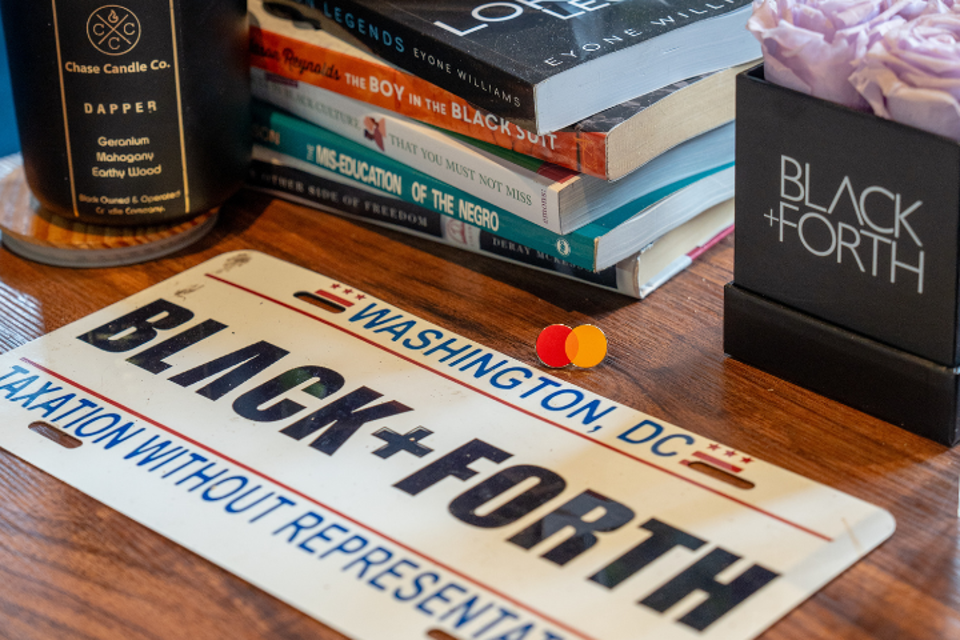
The event took place at Black + Forth, the northeast D.C. shopping center that owner Angel Gregorio has turned into a Black business incubator, hosting pop-ups and offering business training.
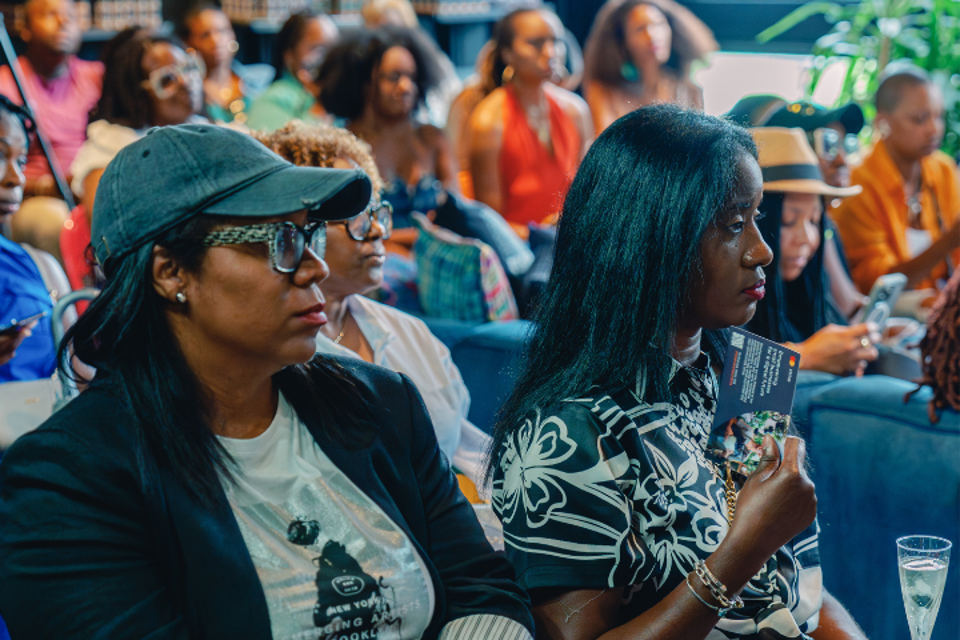
Most Black-owned businesses are located in urban areas, and Washington, D.C., has the largest share of businesses owned by Black entrepreneurs in the country, at 15%, according to a Pew Research Center analysis.
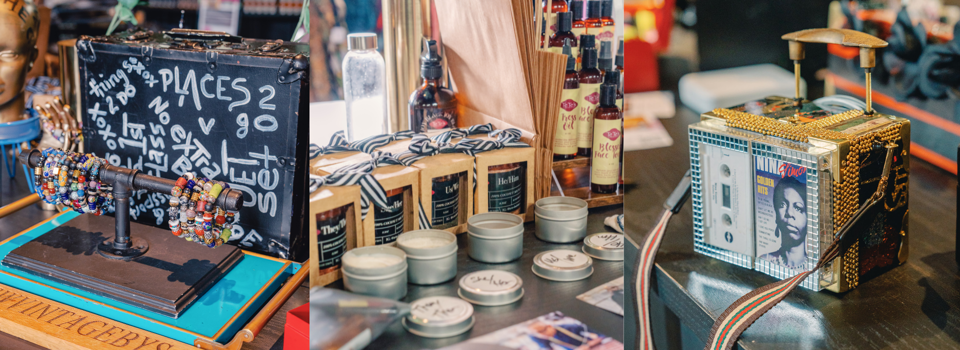
Local makers and other entrepreneurs showcased their wares at a pop-up marketplace at Black + Forth, one of thousands of such events Angel Gregorio has hosted.
But even once Gregorio committed full-time to the shop, she didn’t want to turn her back on public service. After deliberating about what to do with some unused floor space, she extended an open invitation on social media: Black entrepreneurs could run pop-up shops in the Spice Suite for free, selling their goods from a table inside the store. Nine years later, the Spice Suite has hosted more than 3,000 pop-ups by some 500 businesses.
“It’s expensive to rent commercial space in D.C.,” she says. “There are not a lot of Black-owned brick-and-mortar locations. Having free space, even if it’s temporary, provides them with much-needed opportunity.”
Black + Forth
By 2021, the Spice Suite was outgrowing its space. The pandemic lockdowns had been good for business — thanks to all those trapped-at-home cooking experiments — so Gregorio could afford more room to realize her next vision: a multipronged incubator for Black entrepreneurs. That December, she bought a 7,500-square-foot lot in northeast Washington for $1.1 million, which she funded with the store’s revenue and a grant from the D.C. Commercial Property Acquisition fund.
She renovated the site’s existing building — a former auto repair shop twice the size of her original location — to house the Spice Suite. In what had been a car storage lot, she built a two-story complex using retrofitted shipping containers, creating what may be D.C.’s first Black-owned strip mall. She rents the four storefronts to Black entrepreneurs at well below market rate.
Then, in honor of the mutual support among her colleagues, she named the shopping center Black + Forth. The pop-ups have continued in the new space, along with biweekly farmers markets held from April through October in the parking lot.
“We created a space for Black farmers to sell their produce for free,” she says. “There’s no application fee, no profit sharing. They take 100% of their proceeds home.”
A month after Black + Forth opened, Gregorio convened the first session of the Community Business School. Taught by experts on everything from accounting to tax preparation to social media — the first class was on the importance of personal brands — the school’s biweekly masterclasses are free for those who want to learn.
“Most folks who run small businesses did not go to school for business,” Gregorio says. “So I call on experts to help us.”
To reach more businesses and help them overcome challenges, the Mastercard Center for Inclusive Growth also awarded Gregorio’s nonprofit The Dream Incubator a grant to support the Community Business School, plus a one-on-one mentorship program for women, a data specialist to track impact, and more.
For Gregorio, every aspect of the Black + Forth incubator — the pop-ups, the famers markets, the school — is a natural continuation of her unyielding faith in what Black entrepreneurs can accomplish.
“I believe we have enough genius in our community to grow our community.”